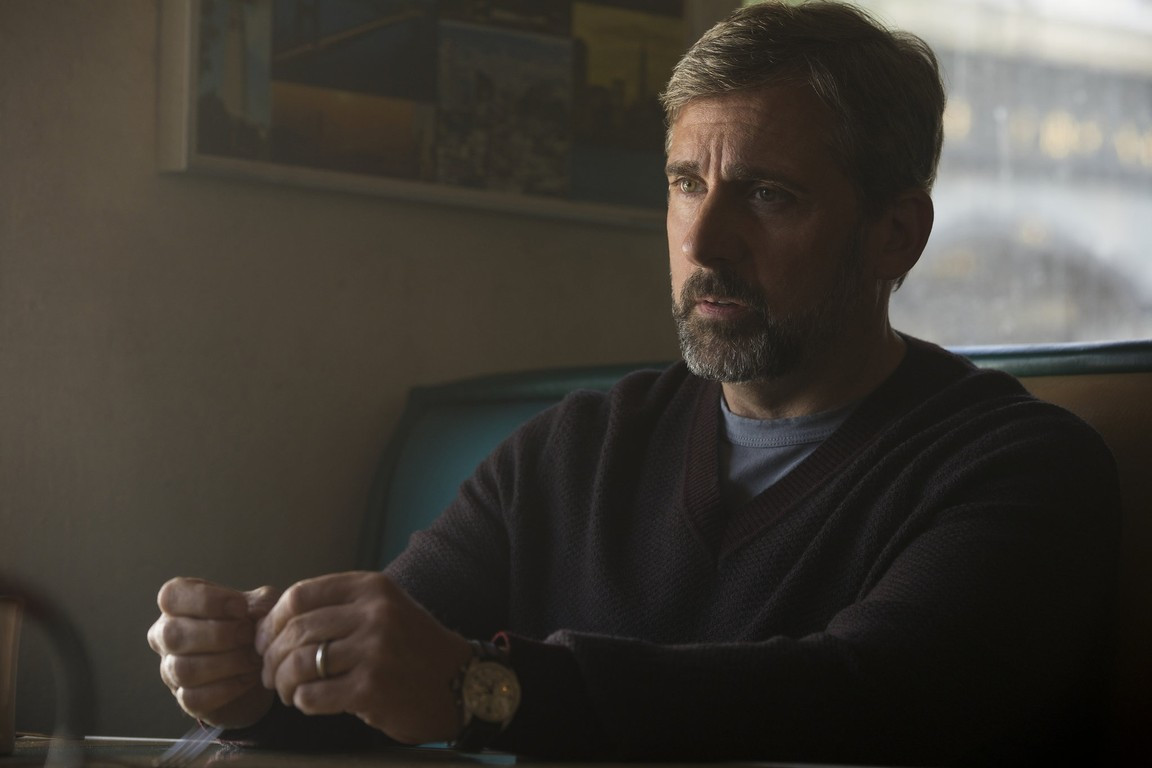 Courtesy of Amazon Studios
Courtesy of Amazon Studios
Beautiful Boy, a film emerging from the Oscar buzz machine, initially presents itself as a calculated awards contender. Starring Timothée Chalamet and Steve Carell, two actors celebrated for their dramatic prowess, and tackling the weighty subject of drug addiction, it certainly ticks the boxes for prestige cinema. While the film’s reception was initially somewhat muted, to dismiss Beautiful Boy as mere Oscar bait would be a disservice. Despite moments of manipulation, the film’s emotional impact is undeniable, making it a profoundly affecting experience.
Based on the dual memoirs of David and Nic Sheff, Beautiful Boy delves into the tumultuous relationship between a father and son as they navigate the son’s harrowing struggle with addiction. David, played by Carell, grapples with disbelief as he witnesses his son Nic’s descent into drug abuse. Nic, portrayed by Chalamet, was not just any child; he was intellectually curious, musically inclined, and shared a strong bond with his parents despite their divorce. Yet, he spirals into addiction, a dark path that threatens to consume him and shatter his family. The film employs a non-linear narrative, skillfully weaving together past and present moments, highlighting the enduring strength of the father-son bond as it is tested by the relentless grip of addiction, a force seemingly impossible to overcome.
Timothée Chalamet delivers a performance of remarkable intensity and nuance. Building upon the promise he showed in Call Me By Your Name, Chalamet embraces a more overtly dramatic role in Beautiful Boy without ever sacrificing authenticity. Even in scenes laden with dramatic monologues and heightened tension, his portrayal feels raw and real, as if the audience is a silent observer to a lived experience. The chemistry between Chalamet and Steve Carell is palpable, creating a believable and deeply moving father-son dynamic. Carell, known for his comedic background, has steadily transitioned into dramatic roles, and Beautiful Boy presents him with a landscape of constant high stakes. The film intentionally avoids humor, immersing the viewer in the life-and-death gravity of the situation, which, while effective, can lead to a sense of emotional fatigue.
 Courtesy of Amazon Studios
Courtesy of Amazon Studios
The film’s unrelenting tension and somber tone are deliberate choices, mirroring the agonizing reality faced by families grappling with addiction. Beautiful Boy unflinchingly portrays a parent’s worst nightmare, and its impact is draining, mirroring the cyclical nature of addiction itself. Nic’s journey through rehab and periods of sobriety, followed by relapses, is depicted with unflinching realism. This pattern, repeated throughout the film, becomes emotionally taxing not only for his family but also for the audience, a likely intentional effect to convey the exhausting nature of loving someone battling addiction. Depicting addiction cinematically is inherently challenging due to its deeply internal nature, rooted in complex motivations and causes. However, Beautiful Boy, drawing from two memoirs, offers valuable insight into both Nic and David’s perspectives. This approach avoids simplistic characterizations of “good guy” or “bad guy,” fostering empathy for both individuals caught in the throes of this crisis.
While some viewers have found the non-linear narrative of Beautiful Boy disorienting, it proves to be an effective storytelling device. The shifts between past and present are generally clear and contribute to a deeper understanding of the characters’ journeys. However, the film’s soundtrack choices are occasionally questionable, with moments where the music feels overly sentimental or on-the-nose, potentially pulling the viewer out of the immersive experience.
Despite its heavy themes and occasionally flawed musical cues, Beautiful Boy is a film that demands attention. The powerful performances by Steve Carell and Timothée Chalamet are the film’s undeniable strength, lending a profound sense of truthfulness and painful reality to the central conflict. Marking the English-language debut of Belgian director Felix Van Groeningen, who co-wrote the screenplay with Luke Davies, Beautiful Boy is visually well-crafted and authentically written. While the direction may not be groundbreaking, the compelling performances of the lead actors more than compensate. Beautiful Boy is an emotionally challenging yet ultimately rewarding film experience.
For those wondering Where To Watch Beautiful Boy, the film is available for streaming on platforms such as Amazon Prime Video, and for rent or purchase on various digital services like YouTube, Google Play, and Apple TV. Check your preferred platform to experience this impactful drama.
